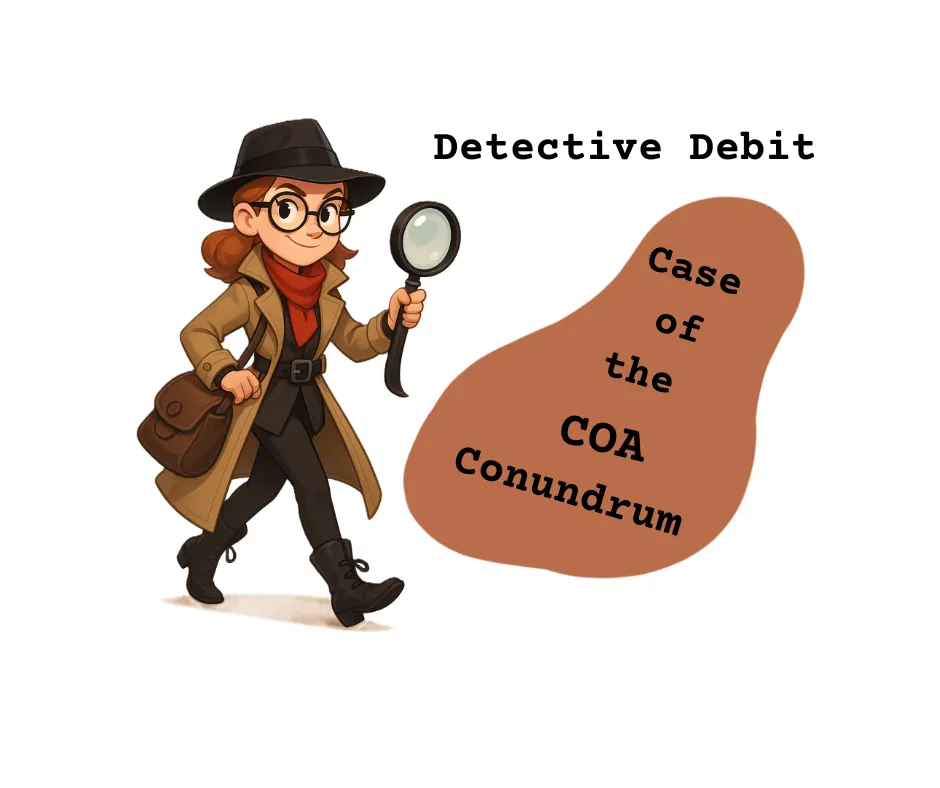
Case File 006: The COA Conundrum
Case File 006: The Chart of Accounts Conundrum — When Too Many Categories Cloud the Truth

Filed under: Fuzzy Reports & Overcategorized Chaos
The reports looked… busy. Income lines blurred together. Expense categories had suspicious overlap. And don’t even ask about the “Miscellaneous” account—it had a little bit of everything.
Detective Debit adjusted her glasses. “Looks like we’ve got ourselves a bloated chart,” she muttered.
A well-organized Chart of Accounts (COA) is the backbone of readable reports—but when categories are created on the fly or labeled vaguely, they can actually hide the real story your numbers are trying to tell. This case? A classic case of category creep.

The Clues
Multiple income categories that mean the same thing (“Sales Revenue,” “Client Income,” “General Services”)
Generic expense accounts like “Office Stuff” or “Other” holding wildly different charges
Reports that overwhelm instead of clarifying
Duplicate or unused accounts cluttering the list
The Twist Most of the time, these accounts started with good intentions:

trying to track something specific or giving vendors their own categories. But over time, the COA becomes bloated. And in QuickBooks, that mess shows up on every report. Detective Debit’s verdict? If the names are vague or overlapping, your reports are lying to you by omission.

The Takeaway Simplify. Consolidate. Rename. Your COA should be built for readability—not encyclopedic detail. Group similar expenses under umbrella accounts (with subcategories only where needed). Use language you understand at a glance. And audit it regularly—because what worked two years ago might be muddying the waters today.
📞 Need Backup? If your books feel more like a maze of meaningless labels than a guide to your finances, let’s clean it up. I can help restructure your chart, streamline your categories, and give you reports that speak your language. No decoder ring required.

Case File 007 — The Ghosts of Bookkeepers Past

Notes in margins, cryptic entries, and leftover systems that no one seems to understand. Detective Debit steps into the haunted ledger left behind by a long-gone bookkeeper—and finds that cleaning up isn’t just about numbers, it’s about translation.